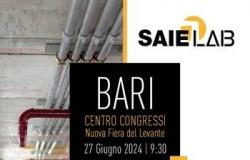AREZZO – Thursday 30 May 2024, at 6 pm, Pergentino Space of the Arts in via Cavour 188, in Arezzo, hosts a conversation entitled “Ancient wars and modern conflicts” together with Alessandro Barchiesi And Federico Canaccini.
The initiative, moderated by the cultural journalist Marco Bottiis organized byEzechiele cultural association in collaboration with thetoLIRIA cultural association.
Two esteemed university professors – the Latinist and classical philologist Alessandro Barchiesi and the medievalist Federico Canaccini – they dialogue and reflect on contemporary wars, which continue to stain the world with blood, through great masterpieces such as the Aeneid and the Iliad and the parallels with medieval wars.
Alessandro Barchiesiprofessor of classical studies at New York University, is a scholar of ancient epics and author of essays on the Homeric tradition, on the Aeneid and on poetry in the Augustan age, in particular that of Ovid.
His speech will focus on ancient epics, which offer us images of distant wars, but can serve to measure similarities and differences with our present. The representation of the facts is in fact not realistic, but both Homer and Virgil have profound intuitions about the meaning of war. They show us, for example, that no war corresponds to the intentions with which the protagonists unleash it, and that at the end of every war everything must be reevaluated and changes meaning. Also interesting is the relationship between war and civil war, which is very important in both the Iliad and the Aeneid.
The differences between these two epic poems reveal the transition from an idea of war linked to tribalism and honor to an idea of war as a process of formation of states and empires.

Federico Canacciniprofessor of medieval studies at the Salesian Pontifical University, deals with Tuscan municipal history and the history of war in the Middle Ages.
His speech will focus on the struggles that characterized the long medieval millennium, starting from the clash between the “Romanitas” and the “Barbaritas”, to continue in a confrontation between Christianity and Islam, fragmenting into hundreds of internal conflicts and assigning each time a new name and a new face to the other, to the enemy.
In particular, the communal conflict of the Tuscan wars, summarized by the Guelph-Ghibelline binomial, bloodied Tuscany and Italy starting from the thirteenth century and then continued throughout the Middle Ages, going beyond its limits to arrive with substantial changes up to the nineteenth century, with Neo-Guelphism and Neo-Ghibellinism. The use and abuse of terms and propaganda will be a reason for reflection on how, ultimately, some mechanisms are reiterated up to the present day, in a moment in which we are experiencing the drama of new conflicts.







